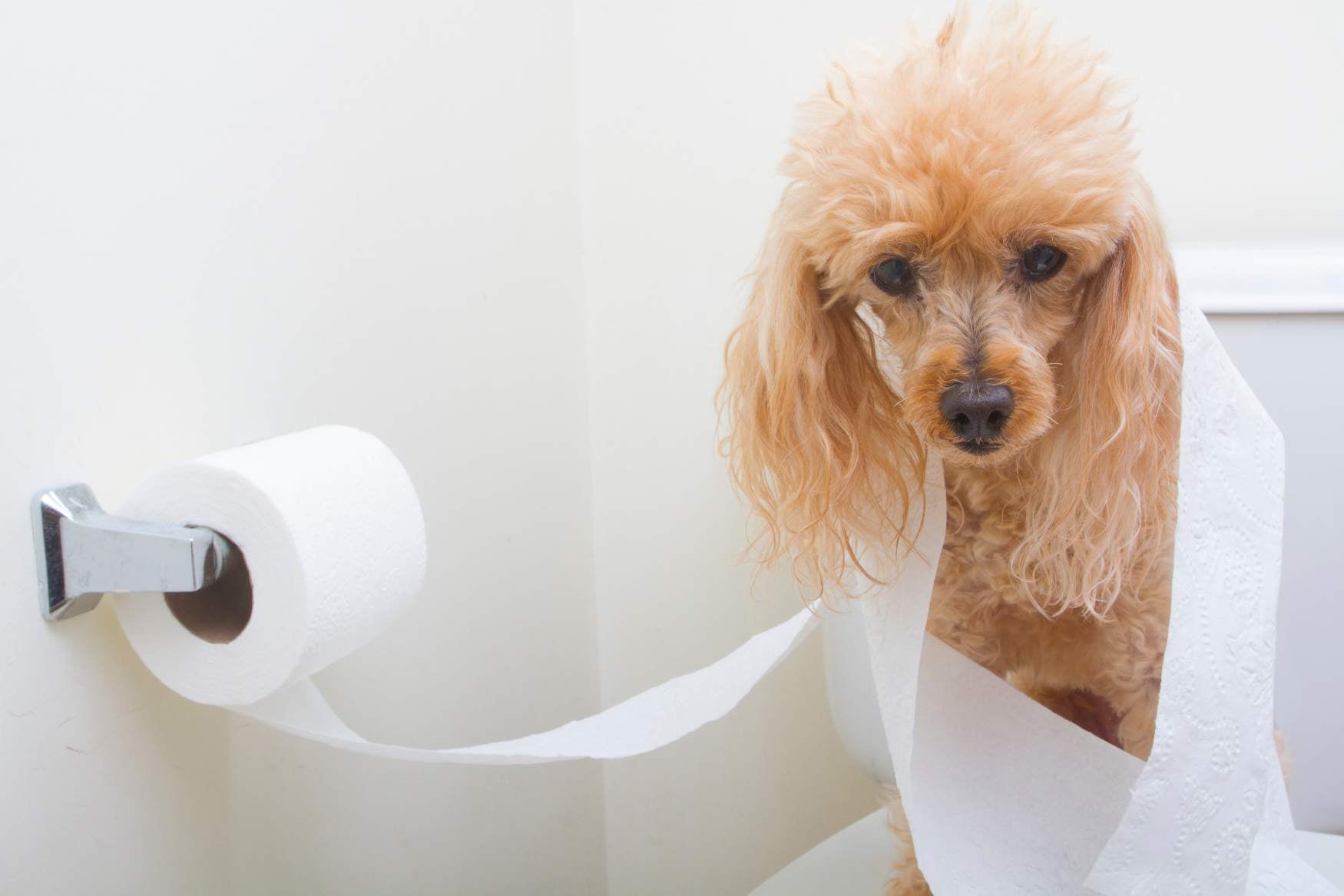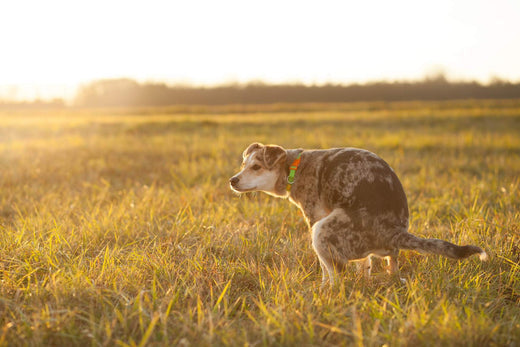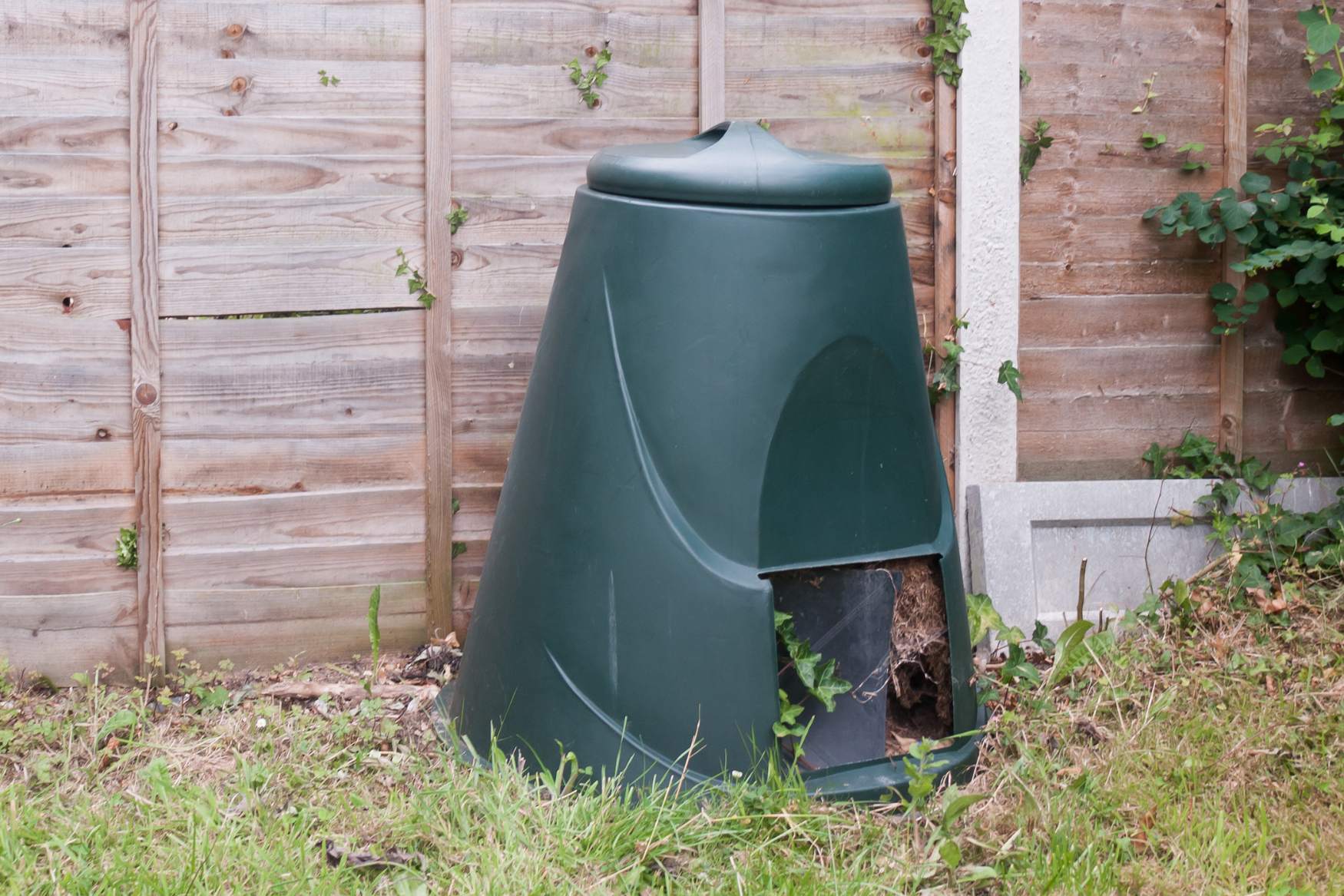1. They're made with up to 80% fossil fuels.
They are mainly made with PBAT (polybutylene adipate terephthalate) - a biodegradable plastic made from fossil fuels. They are often described as ''plant-based'' even if they only contain 20% plants (e.g. corn-starch) (1).
2. Compostable poo bags are rarely composted, meaning they still end up in landfill and incineration (2).
Only 10% of people can or do compost at home and currently there are no industrial composting facilities (or anaerobic digestion plants) or collection systems in place that accept dog waste and poo bags in the UK.
This means the majority of people dispose of them in general waste or dog poo bins, which goes straight to landfill or incineration.
If compostable poo bags aren't being composted, the potential sustainability of them breaks down entirely.
3. If they end up in landfill, they will still take years to breakdown and produce methane, a potent greenhouse gas (7).
4. They are designed to biodegrade in very specific environmental conditions and therefore do not biodegrade in the incorrect conditions of landfill or the open environment, thus remaining intact for years before fragmenting into microplastics (3, 4).
5. We should not use corn-starch (or any other food crop) to make plastic when it can be made from by-products or waste.
We already struggle to feed millions of starving people across the globe and this is set to increase substantially over the coming decades.
Growing food crops for plastic directly competes with human food production, may drive up the costs of food, and requires huge amounts of land and water which are already scarce resources.
So much so, the European commission explicitly discourages the use of corn or potato to make plastic (5).
6. Most do not biodegrade even in home or industrial compost (2).
New research found the majority of biodegradable and compostable plastics did not biodegrade as claimed.
They found that 60% of compostable plastics (including properly certified home compostable bags) didn't biodegrade in home compost heaps.
Anecdotally, industrial composting facilities also report that certified industrially compostable poo bags don't biodegrade as they should either and claim they do not want them (6).
7. Several life cycle analyses have shown that bio-based and compostable/biodegradable plastics are the same, if not worse, than normal plastic, in terms of energy use, climate change, air pollution and eco-toxicity (1, 7).
A life cycle analyses is the most comprehensive assessment of a product's overall environmental impact, as it considers the many environmental impacts of it's raw materials, production/manufacturing, use and end-disposal.
8. They may increase littering, as people believe they will quickly breakdown in the open environment, which they don't (8).
9. There is a high level of confusion surrounding the terms compostable, biodegradable, degradable and oxo-biodegradable, meaning people may dispose of them incorrectly (2).
For example, people believe biodegradable or industrially compostable plastic will biodegrade in home compost - which isn't the case. If you're not sure what these terms mean - read this article.
So what's the solution?
Despite the many problems with compostable poo bags (and compostable plastics more generally), they might one day prove beneficial if the following three things happened:
-
Better compostable poo bags that actually biodegrade in compost conditions and do not rely on fossil fuels or food crops (instead using bio-wastes, agricultural wastes, or algae).
-
Clear guidance for the public on how and where to dispose of these bags properly.
-
The infrastructure to actually compost dog poo on a large scale, i.e. Industrial composting facilities (or anaerobic digestion plants) that accept dog waste and compostable poo bags and widespread public collection schemes that will collect and send waste to them.
But we're still a long way off this..
So, what's the solution until the technology and infrastructure catch up?
Instead of creating new plastic from fossil fuels and food crops (e.g. corn-starch), ReSEAcled poo bags re-use plastic and oyster shell waste that was already destined for landfill or incineration.
By re-using waste, less plastic is produced, less resources are used, less plastic ends up in landfill or incineration and less carbon dioxide is emitted during production (as recycled plastic has a smaller carbon footprint than new plastic) (9).
Unlike plant-based and compostable/biodegradable poo bags, the renewable content in ReSEAcled poo bags (oyster shell waste) does not require pesticides, fertilisers, GMOs, fossil fuel guzzling farming machinery or the clearing of land and forest and does not compete with human food production, so has a considerably smaller ecological footprint.
On top of all that, every ReSEAcled poo bag stops one plastic bottle entering the ocean, through Pet Impact's partnership with Ocean Co.
This makes them the world's first certified Plastic Negative poo bag, removing 5 times as much plastic from nature as used in the poo bag itself!
We believe in having a holistic approach and considering the entire life cycle of our products.
Based on the sum of evidence and the fact that home composting isn't a scalable or viable solution currently (2), we believe ReSEAcled Poo Bags are the best solution for the majority of people.
But once the infrastructure or technology changes, so will we. So stay tuned with us via social media to follow our poo bag journey!
References:
1. https://static1.squarespace.com/static/5eda91260bbb7e7a4bf528d8/t/629f2abd81cae042c741ef4e/1654598333506/UNEA-publication-packet_bioplastic.pdf
2. https://www.frontiersin.org/articles/10.3389/frsus.2022.942724/full
3. https://pubs.acs.org/doi/10.1021/acs.est.8b06984
4. https://onlinelibrary.wiley.com/doi/10.1002/anie.201805766
5. https://www.biodeg.org/subjects-of-interest/composting/
6. https://bioplasticsnews.com/2020/06/22/compostable-plastics-industrial-composting-site/
7. https://www.biodeg.org/wp-content/uploads/2020/09/intertek-final-report-15.5.121.pdf
8. S.%20Groner%20Associates.%20(2009).%20Littering%20and%20the%20iGeneration:%20City-Wide%20Intercept%20Study%20of%20Youth%20Litter%20Behavior%20in%20Los%20Angeles.%20Keep%20Los%20Angeles%20Beautiful
9. https://www.imperial.ac.uk/media/imperial-college/faculty-of-natural-sciences/centre-for-environmental-policy/public/Veolia-Plastic-Whitepaper.pdf
https://plasticsolutionsreview.com/biodegradable-and-compostable-plastics/
https://www.biodeg.org/wp-content/uploads/2022/12/BPA-21-Reasons-why-20-12-22.pdf













